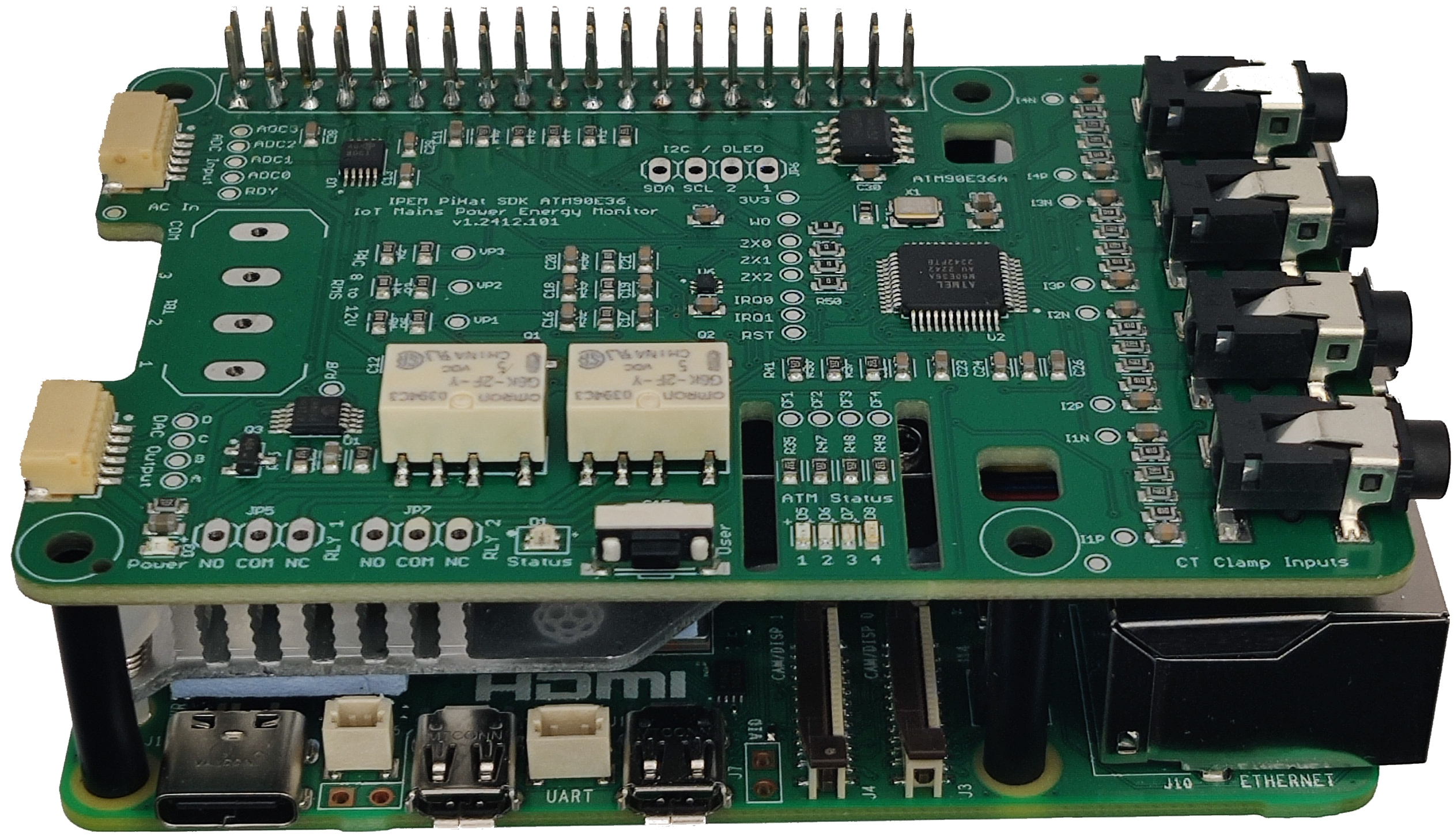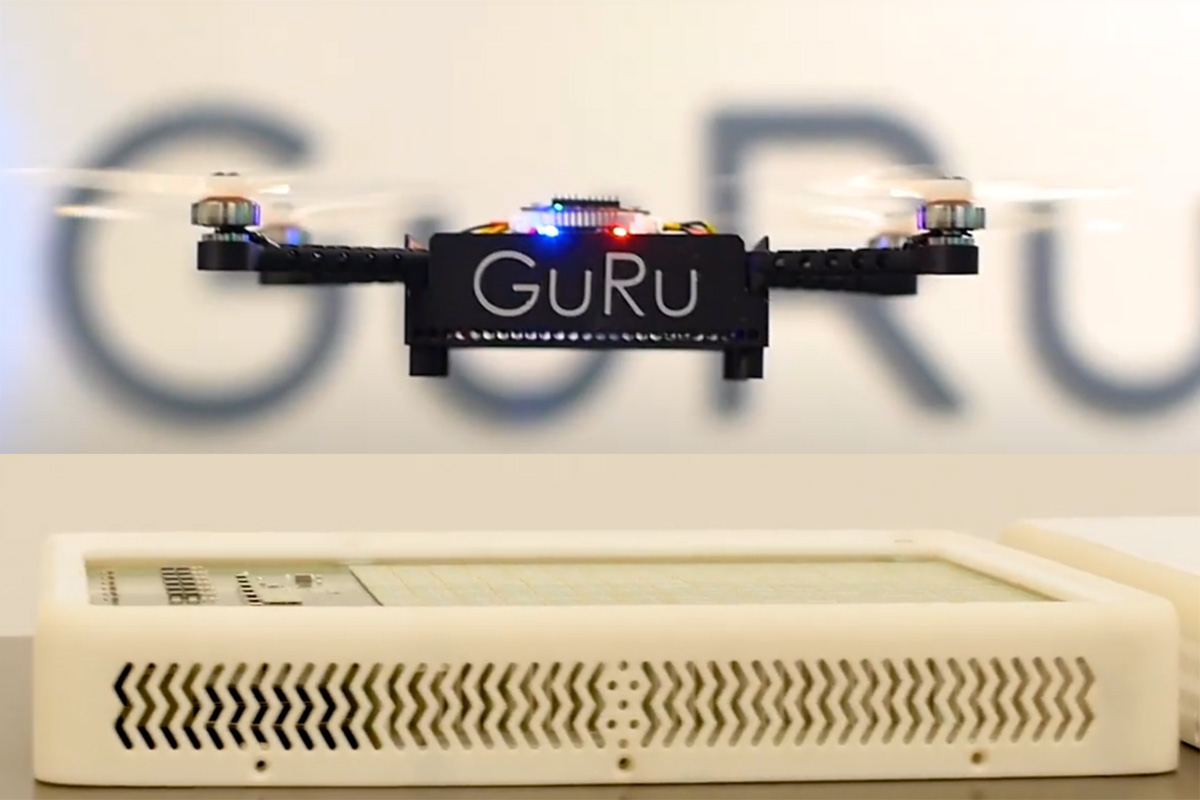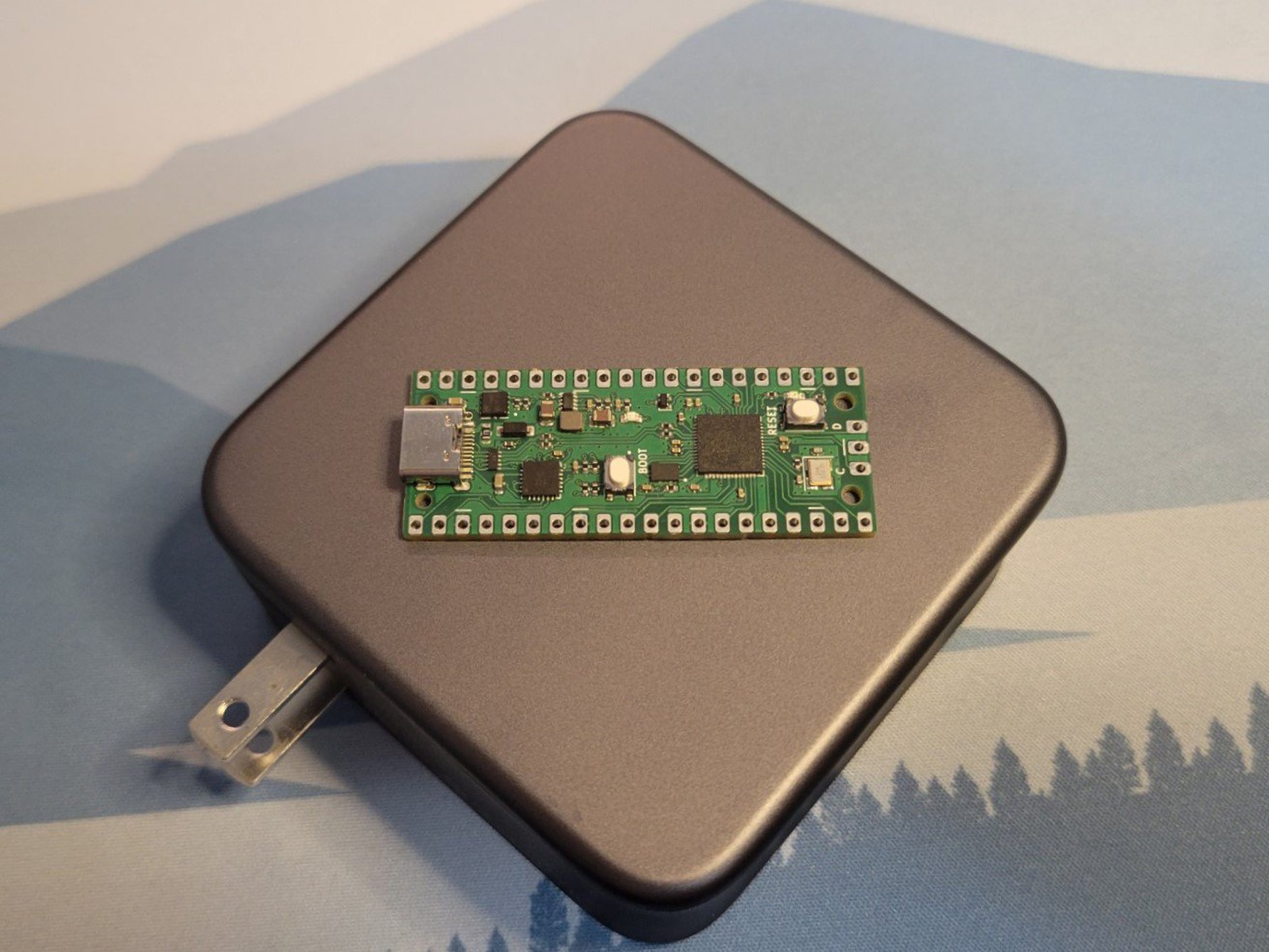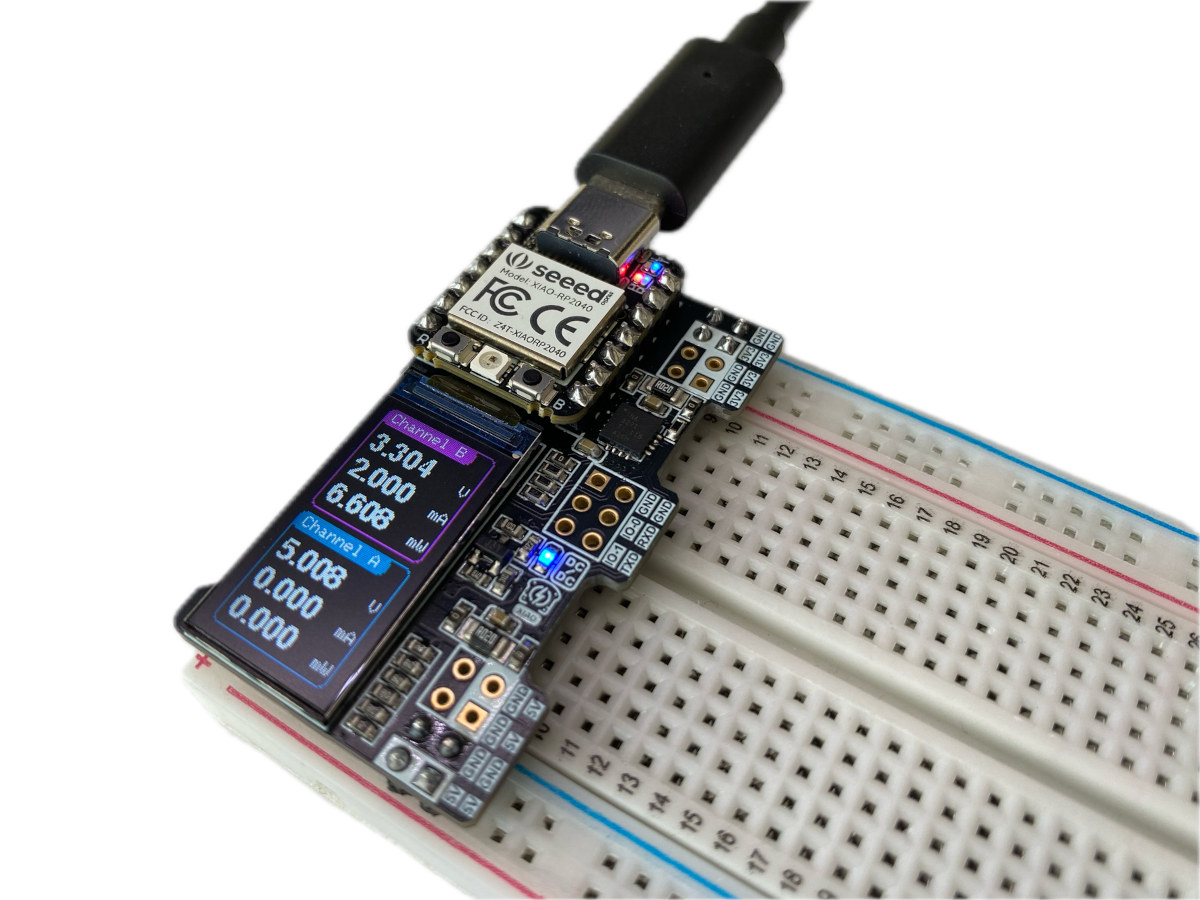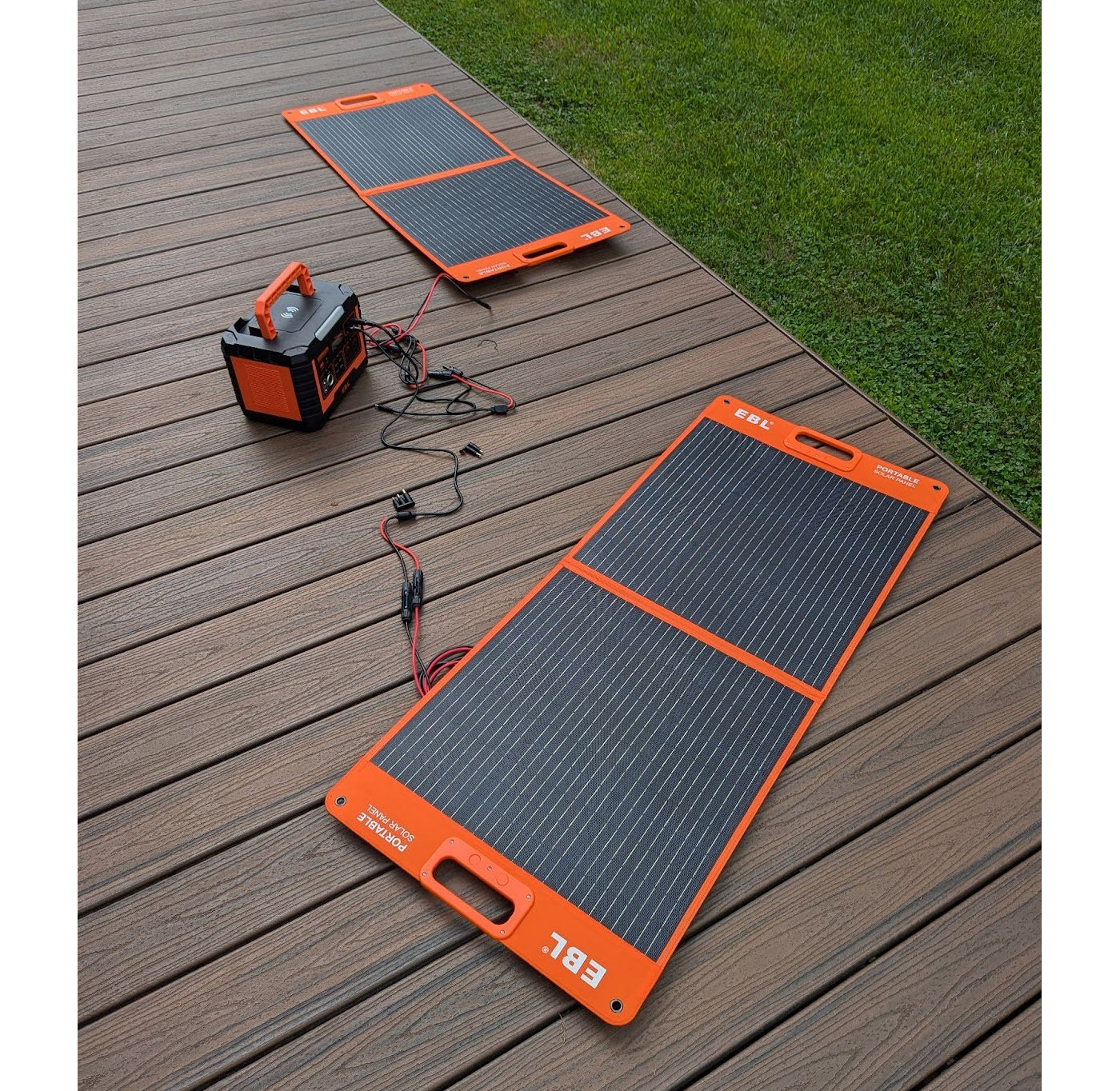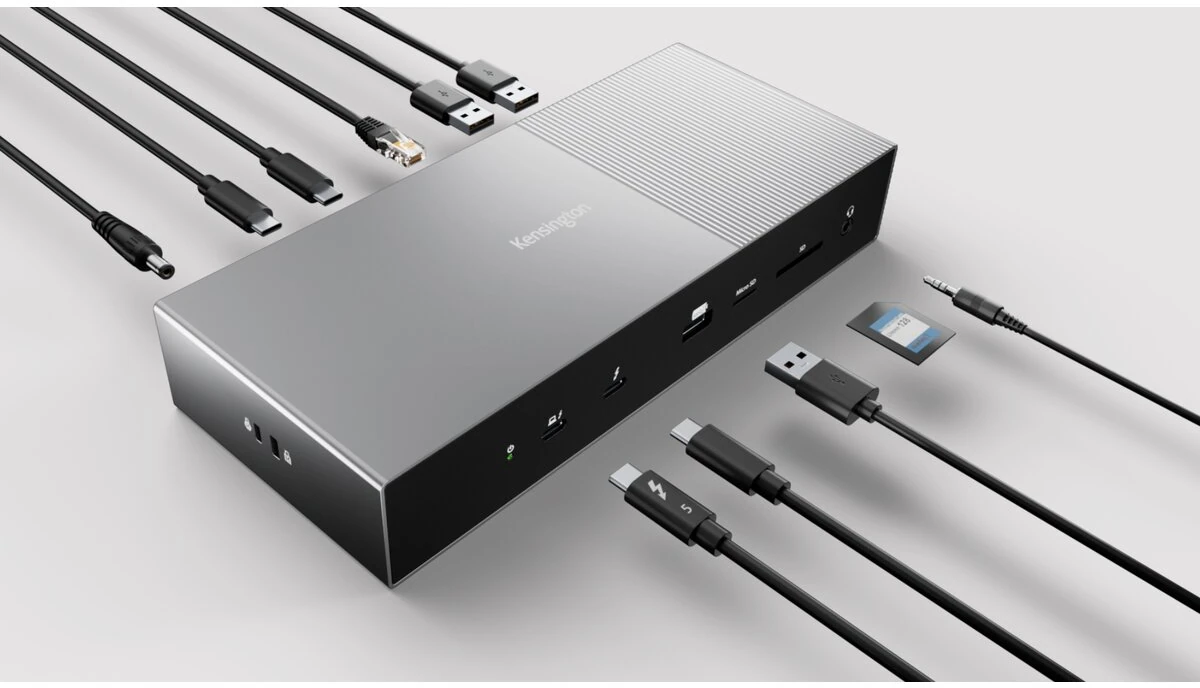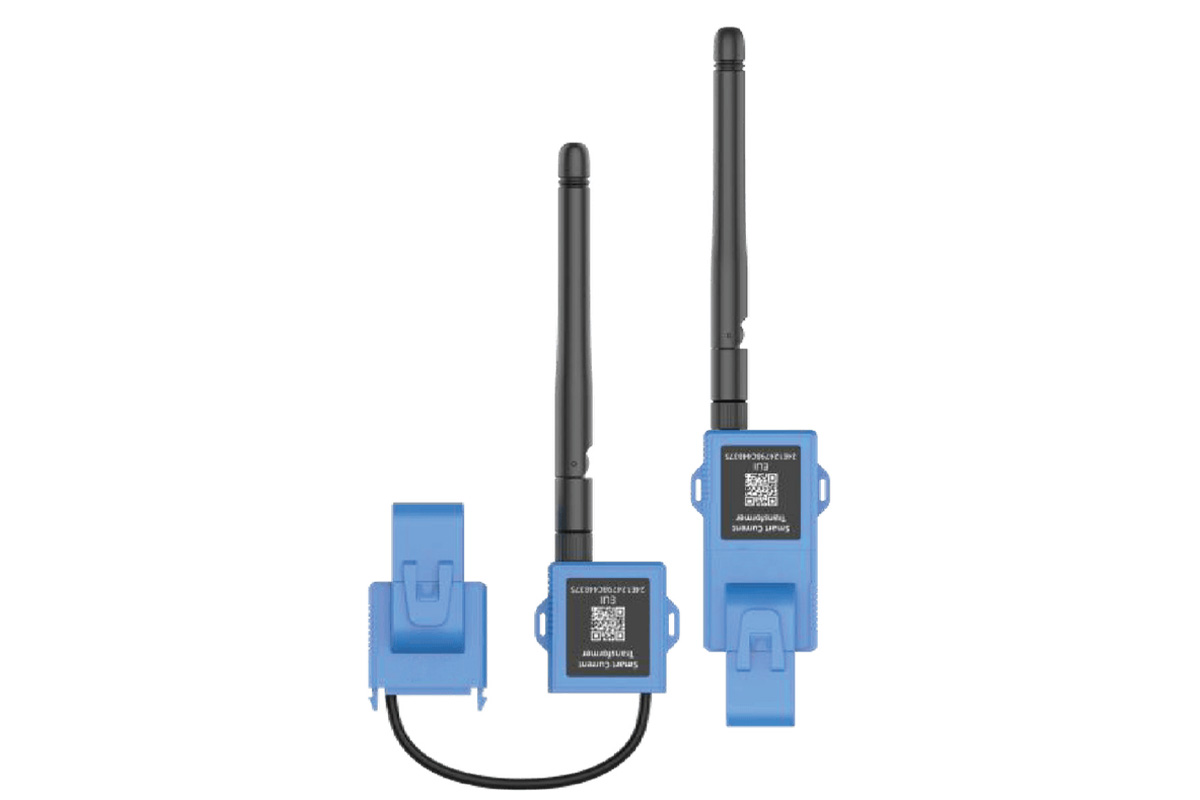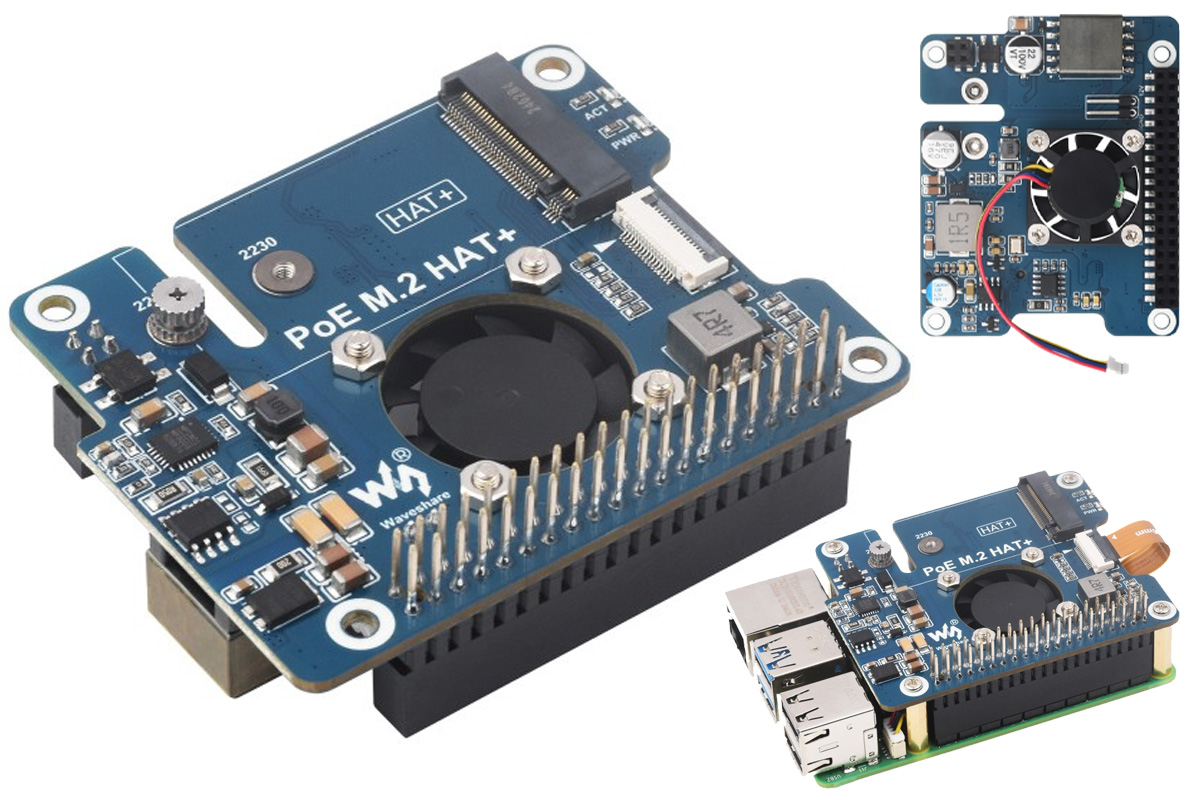The IPEM PiHat is a HAT (Hardware Attached on Top) board for the Raspberry Pi that turns the single-board computer into a mains power energy monitor with four CT clamps. It provides an accurate way to track energy usage in home, office, and solar energy systems and is compatible with single-phase, two-phase, and three-phase electrical systems. The Raspberry Pi-based power energy monitor uses CT (current transformer) cable clamps to sample and measure data which can be used to report and analyze electric energy usage. This data can be used to save and divert energy to reduce costs and inefficiencies. The system is easy to set up and does not require a professional electrician. It uses a CT current clamp clipped over the building’s main power cables and connected to the local mains circuit for voltage and frequency measurement. The add-on board comes in two variants: IPEM PiHat and IPEM PiHat […]
GuRu’s modular wireless power transfer system can power a drone indefinitely
California-based company GuRu Wireless has recently developed and showcased a scalable and modular wireless power transfer system that is capable of delivering power to a high-power device up to several kilowatts, such as a drone, from up to 30 feet away (a little over 9 meters). They also mention that the system can power low-power devices, like LEDs and consumer electronics, over distances of several kilometers. It’s quite an extension to the GuRu’s desk-range wireless power evaluation kit we covered in 2020. The system uses 24 GHz high-frequency millimeter-wave radio signals to deliver energy over long distances without needing batteries or tethered systems. GuRu’s system uses a phased array transmitter with proprietary RFICs, to precisely deliver power to the receiver called the Recovery Unit (RU). In a recent demonstration video, GuRu Wireless showcased their wireless power transfer system by powering a drone from 30 feet away, operating it continuously for […]
PicoPD Pro – An open-source RP2040 development board with USB PD support up to 30V
The PicoPD Pro is an open-source Raspberry Pi RP2040 development board that integrates USB PD support up to 30V, and features like voltage negotiation and power delivery while still retaining the Raspberry Pi Pico functionality. It features the AP33772S USB-C PD3.1 sink controller from Diodes Incorporated. The AP33772S supports the full USB-C PD 3.1 specification, including Extended Power Range (EPR) / Adjustable Voltage Supply (AVS) up to 28V and Programmable Power Supply (PPS) up to 21V. The PicoPD Pro USB PPS/AVS development board is ideal for powering devices with specific requirements, such as motor control boards, LED drivers, custom battery chargers, and other high-power applications. It also features a 5V rail output for less demanding applications. It can also be used as an AP33772S evaluation board. We have previously seen other USB-C PD solutions like the Spark Analyzer, YULC LED Controller, and USB Insight Hub which may serve a similar […]
XIAO Powerbread is a breadboard power supply and meter based on XIAO RP2040 or ESP32 USB-C board
The XIAO Powerbread is a breadboard power supply and meter compatible with XIAO RP2040 or ESP32 USB-C boards and equipped with a color LCD display showing real-time voltage, current, and power consumption for 5V and/or 3.3V power rails. Breadboard power supplies are nothing new. We’ve written about several over the years including the Toaster board with adjustable voltage from 5 to 16V, the SwitchTrick switching power supply board, and the MEGO portable breadboard power supply with a built-in battery. The XIAO Powerbread only supports 5V and 3.3V power rails, but its main selling point is its integrated breadboard power meter function. XIAO Powerbread specifications: Supported USB-C modules General purpose MCU – XIAO RP2040, XIAO RP2350 WiFi / Bluetooth MCU – XIAO ESP32S3, XIAO ESP32C3, XIAO ESP32C6 Display – 0.96-inch color TFT LCD with 160×80 resolution and ST7735S SPI controller Power monitoring – 2x TI INA3221 sensors connected over I2C […]
EBL MP1000 Review – A 1000W portable AC/DC power station with solar panels
Hey, Karl here and I am getting old. I guess middle age is more accurate. Two wonderful kids and I want to stick around for a while. I have not been feeling well and as a result, I picked up strength training as a form of exercise. I started with an adjustable bench and a set of adjustable dumbbells. I trained with them for about 3 months in my office. I had just enough space. I was hooked. I dove in and learned as much as I could on current best practices, and developed a spreadsheet for tracking progress. I started to outgrow the 55lb/25kg adjustable dumbbells with several exercises and the next step was a squat rack, bar, and Olympic weights. My problem was the lack of space. I had a building that was poorly organized. After a bit of organizing, I was able to carve enough space for […]
Thunderbolt 5 devices are starting to show up with OWC portable SSD and Kensington docking station
Thunderbolt 5 was first unveiled last year with promises of 120 Gbps bandwidth and support for multiple 8K monitors. The good news is that the first Thunderbolt 5-compliant devices are now coming to market. There’s not too much to choose from for now, but we need to start somewhere, and the OWC Envoy Ultra portable SSD ($299.99 and up) and the Kensington SD5000T5 EQ Thunderbolt™ 5 Triple 4K Docking Station with 140W PD ($399.99) – also found on Amazon – are some of the first Thunderbolt 5 devices to make it to market. OWC Enjoy Ultra Thunderbolt 5 portable SSD Key features: Speed over 6000MB/sm or up to twice faster than Thunderbolt 4 and USB4 Capacity – 2TB or 4TB Compatibility – Macs, PCs, iPad Pros, Chromebooks, and Surface devices with a Thunderbolt 3 to 5 port, or USB4 port Rugged design – Waterproof, dustproof, and crushproof Power Supply – […]
MachineQ MQpower CT battery-less LoRa CT clamp measures up to 250A of current
MachineQ has recently introduced MQpower CT, a self-powered, IoT-enabled, LoRa CT clamp designed to monitor real-time current consumption. This CT clamp can measure both accumulated (Ah) and instantaneous current(A) with loads up to 100A and 250A with 1mA resolution. Additionally, it integrates a LoRa module for communication that gets powered by the induced current in the clamp itself. These features make this device useful for energy management, proactive maintenance, power monitoring, and more. We have covered various WI-Fi CT clamps in the past like the SONOFF POW Ring, the Emporia Vue Gen2 with 16 CT clamps, the ESP32-S2-based “smart power meter”, and more. Feel free to check those out if you are interested in Wi-Fi CT clamps. MQpower LoRa CT clamp specifications Connectivity – LoRaWAN Measurement range Up to 100A or 250A models 1mA resolution Accuracy ±1% (>5Arms) ±3% (≤5Arms) Misc Onboard reboot button and LED status indicator FUOTA (Firmware Update Over […]
Low-cost Raspberry Pi 5 HAT+ combines M.2 socket for NVMe SSD and PoE power input
With a cost of only about $25, Waveshare has recently introduced the PoE M.2 HAT+ for the Raspberry Pi 5, which is much cheaper than the similar N-Fuse PoE HAT that we’ve written about previously. As the name implies, this new Waveshare board supports Power over Ethernet (PoE) and features an M.2 slot to add NVMe SSD storage to the latest Raspberry Pi SBC. This new Waveshare HAT complies with the 802.3af/at standards and can deliver up to 25.5W of power to the Pi 5, enabling both power and network connectivity over a single Ethernet cable. Additionally, it features onboard 5V & 12V header outputs for powering additional devices like cooling fans, and there are also two LEDs for status. A fast storage device and the ability to power the device with ethernet makes this device suitable for applications such as network-attached storage, media centers, and edge computing applications. Waveshare […]


